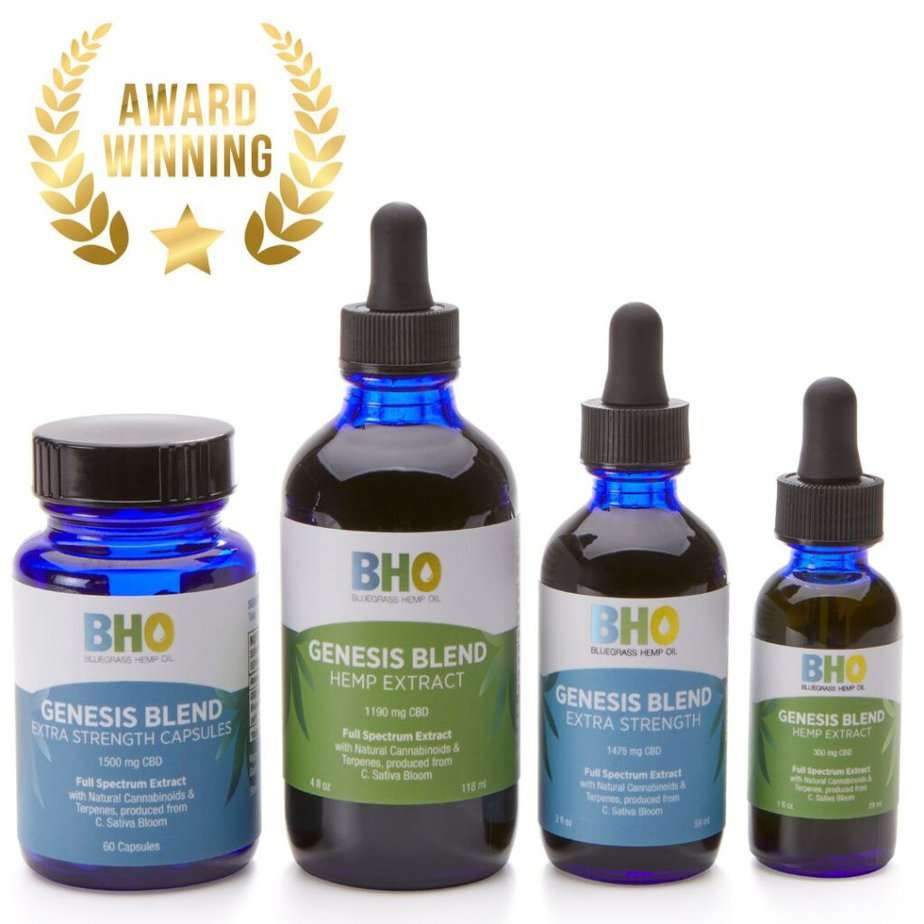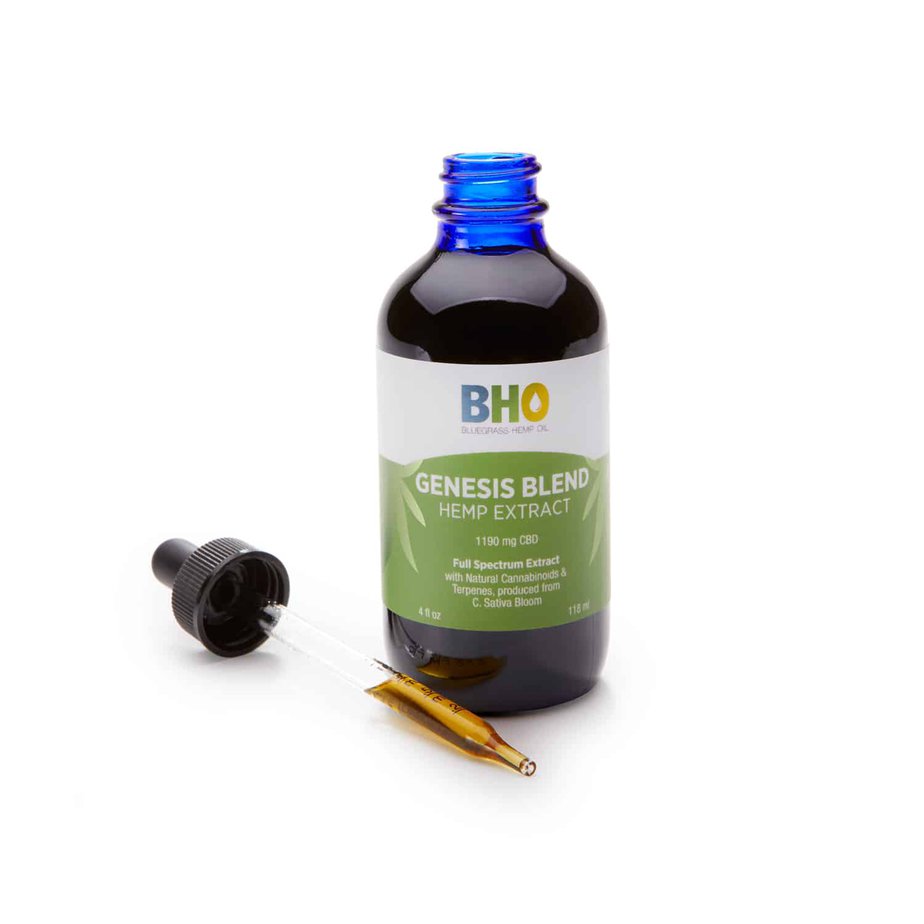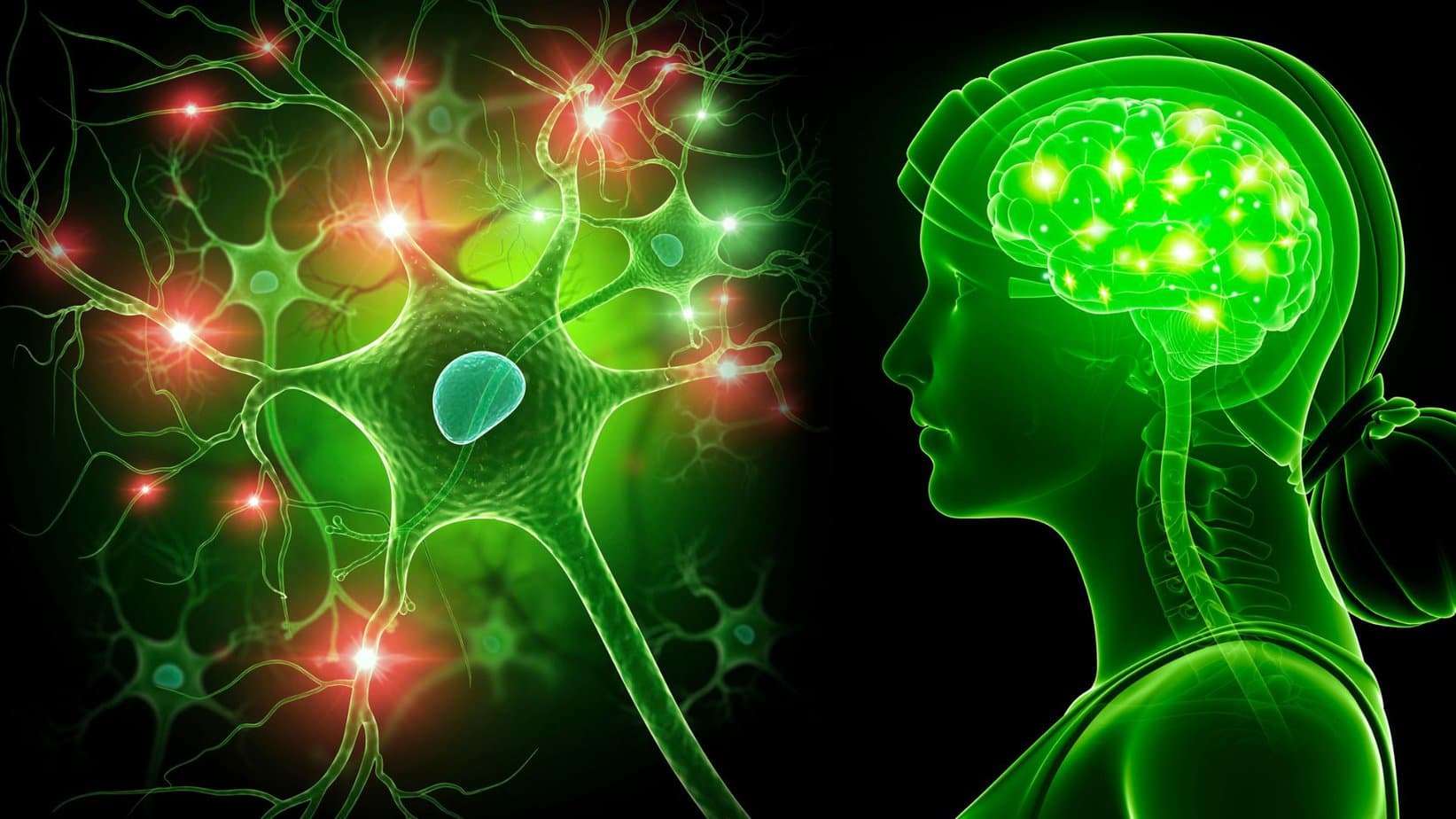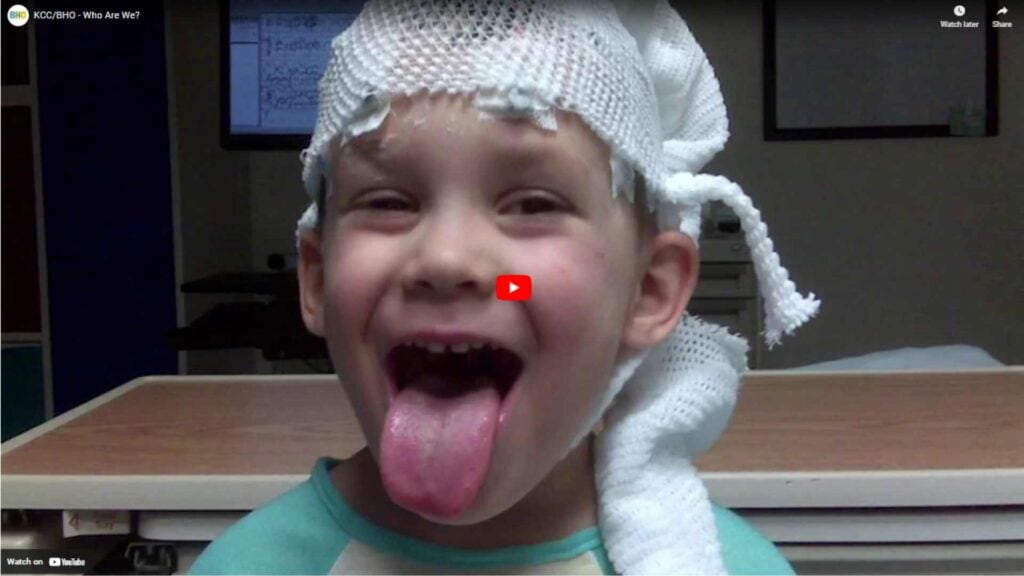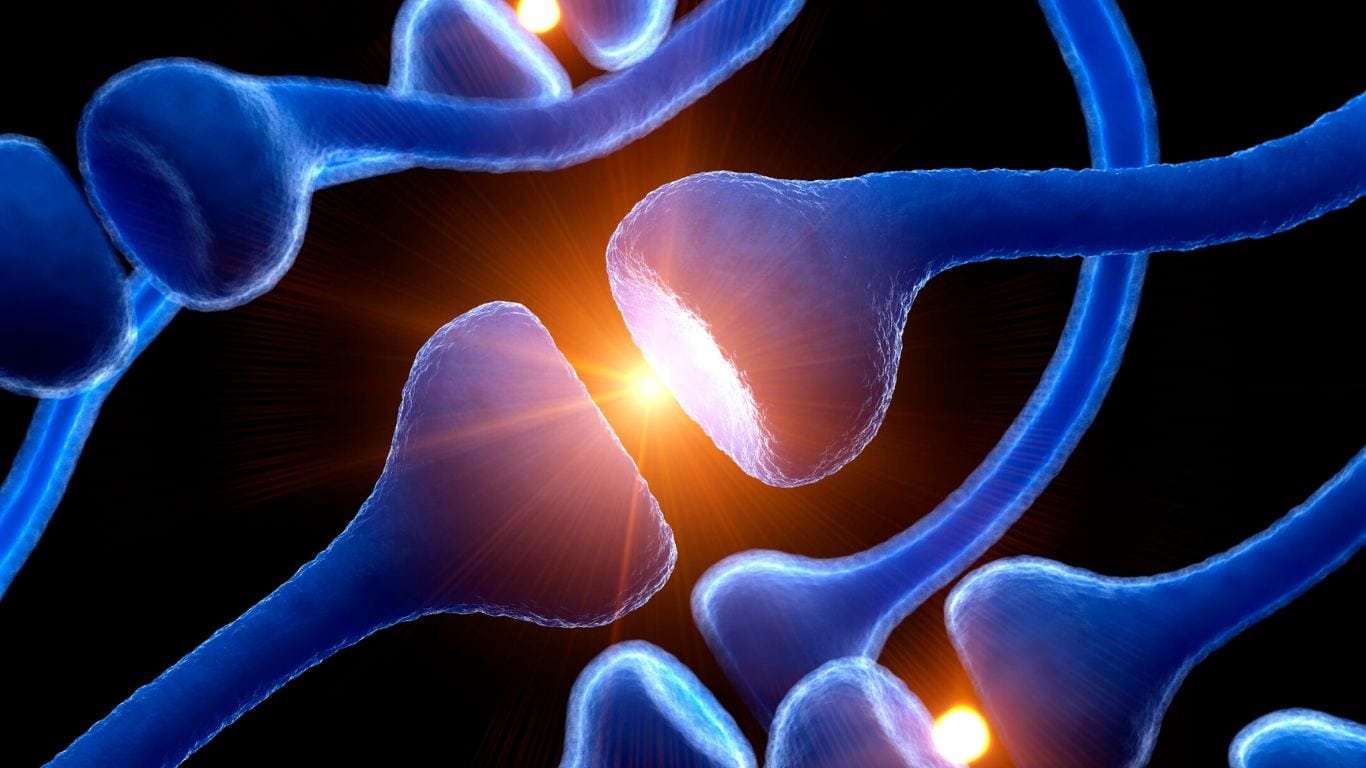CBD FOR SEIZURES
CBD For Seizures
Are you or a loved one struggling with seizures and searching for a potential solution, like CBD for seizures? Look no further, this page my hold the key to relief.
In recent years, using CBD for seizures has been making waves in the medical community for its potential health benefits, particularly in the treatment of seizures. Imagine a natural remedy that could provide relief from the debilitating effects of seizures, without the intoxication associated with other medications. Well, that’s exactly what using CBD oil for seizures offers for some people and pets as well.
But what makes CBD oil so promising? It’s all about the power of cannabinoids. Genesis Blend CBD oil has been meticulously crafted to contain a higher concentration of natural cannabinoids and terpenoids compared to other brands on the market. This makes it the best CBD oil for seizures to try. These cannabinoids play a crucial role in interacting with the body’s endocannabinoid system, which is responsible for regulating various bodily functions, including seizures. CBD Oil for Seizures
With a suggested dosage of 1 ml twice a day, this CBD oil has the potential to provide much-needed relief for those suffering from seizures. So, get ready to explore the exciting world of CBD oil and its potential in seizure management.
The Benefits of CBD for Seizures
If you’re looking for the best Full Spectrum CBD oil for seizures, our Genesis Blend CBD oil has been proven to contain the highest amount of natural cannabinoids and terpenes on the market, making it an ideal choice for those seeking relief from seizures.
CBD has been gaining recognition for its potential benefits in seizure treatment, and research has shown promising results. Studies have found that CBD can help reduce the frequency and severity of seizures in certain types of epilepsy. In fact, the FDA has approved a CBD-based medication. Epidiolex has been approved for the treatment of seizures associated with two rare forms of epilepsy.
*Note: While Epidiolex has been approved by the FDA and prescribed by doctors it should be noted that the product is manufactured using isolated CBD mixed with alcohol and sucrose. Both ingredients are not usually recommended for use with pediatric children.
Discover the differences between Epidiolex and Genesis Blend Hemp CBD Oil in this comprehensive comparison article.
When it comes to CBD dosage for seizures, it is important to consult with a healthcare professional to determine the right amount for you. The dosage can vary depending on factors such as the severity of the seizures, the individual’s weight, and their body’s response to CBD. It’s recommended to start with a low dosage and gradually increase it until the desired effects are achieved.
One of the advantages of using CBD for seizures is that it can be used as an alternative or adjunct to traditional medications. Some individuals may find that CBD provides better seizure control with fewer side effects compared to conventional medications. However, it’s important to note that CBD shouldn’t be used as a replacement for prescribed medication without the guidance of a healthcare professional. CBD should be used in conjunction with medical supervision to ensure the best possible treatment outcome.
How CBD Can Help Treat Seizures
Utilizing full spectrum hemp oil has been shown to provide potential benefits in the treatment of seizures, allowing you to experience a more holistic approach to managing your condition.
When it comes to CBD dosage recommendations, it’s important to start with a low dose and gradually increase it until you find the right amount for your needs. It’s recommended to start with 1 ml twice a day of Genesis Blend CBD oil, placing it under your tongue and letting it sit for 20-30 seconds before swallowing. This will provide you with approximately 10mg of CBD per serving. However, it’s always best to consult with your healthcare professional for personalized dosage recommendations.
While CBD has shown promising results in treating seizures, it’s important to be aware of potential side effects. Some individuals may experience drowsiness, dry mouth, or changes in appetite. It’s also important to consider the potential interactions of CBD with other medications you may be taking. CBD can affect the metabolism of certain medications, so it’s important to discuss this with your healthcare professional to ensure there are no adverse effects.
When choosing a quality CBD product for the treatment of seizures, it’s important to look for a full spectrum CBD oil like Genesis Blend. This ensures that you’re getting not only CBD, but also a rich blend of other natural cannabinoids and terpenes that work together to provide maximum benefits. Additionally, it’s important to choose a product that has been in-house and third-party lab tested to ensure its quality and potency.
By considering these factors, you can make an informed decision and find a CBD product that’s most suitable for your needs.
Understanding and Managing Dog Seizures: This article serves as a comprehensive guide to understanding and managing seizures in dogs. It describes seizures as sudden, abnormal discharges of electrical activity in a dog’s brain, which can manifest as loss of consciousness, convulsions, and other symptoms. The article discusses various causes of seizures in dogs, including genetic predisposition and environmental factors like stress. It emphasizes the importance of recognizing the symptoms for effective intervention and outlines management strategies, such as medication and lifestyle changes. The potential benefits of using full spectrum CBD oil as part of a dog’s seizure management regimen are also explored.
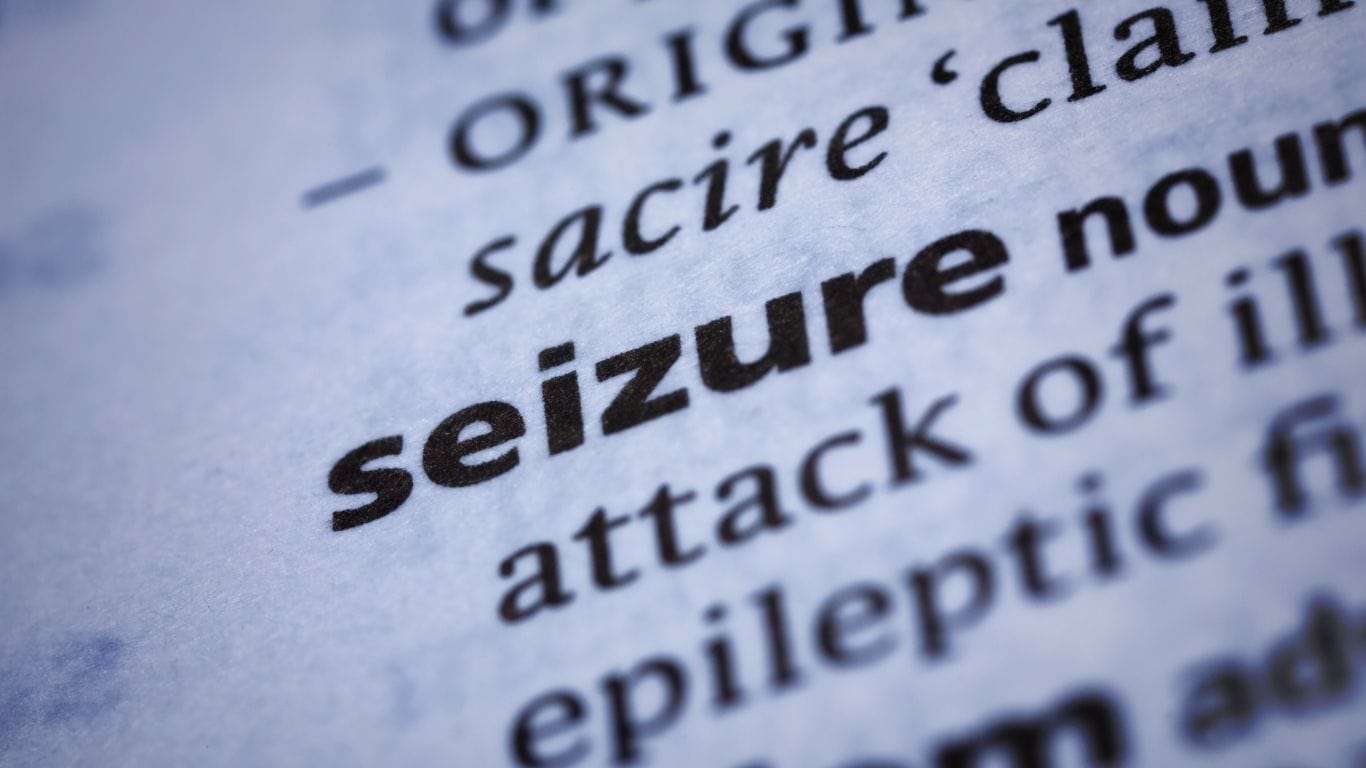
CBD Oil: A Promising Treatment for Seizures
When it comes to managing your condition, you can experience a ray of hope with CBD oil, a potential key to unlocking the door to seizure control. CBD research has shown promising results in the field of seizure management, offering an alternative treatment option for those who haven’t found success with traditional medications.
Studies have indicated that CBD oil may help reduce the frequency and intensity of seizures in individuals with seizure disorders.
Finding the right CBD dosage is crucial for optimal seizure control. It’s recommended to start with a low dose and gradually increase until the desired effects are achieved. Consulting with a healthcare professional experienced in CBD therapy can help guide you in finding the appropriate dosage for your specific needs.
While CBD oil shows promise in managing seizures, it’s important to note that it’s not a cure-all solution. It should be used in conjunction with other medical treatments and under the supervision of a healthcare provider. Research is still ongoing to fully understand the mechanisms by which CBD interacts with the body and how it can best be utilized for seizure management.
However, with its potential benefits and minimal side effects, CBD oil offers a glimmer of hope for individuals seeking relief from seizure disorders.
Understanding the Role of CBD in Seizure Management
Understanding how CBD oil can potentially help manage seizures offers hope and relief for individuals searching for alternative treatment options. CBD, short for cannabidiol, has shown promising results in the treatment of epilepsy and seizures. Here are some key points to consider when exploring the benefits of CBD oil for management:
- CBD and Epilepsy: Studies have shown that CBD can be effective in reducing the frequency and severity of seizures in individuals with epilepsy. It works by interacting with the endocannabinoid system in the body, which plays a role in regulating various physiological functions, including the control of seizures.
- Managing Seizures with CBD: CBD oil has been found to have anticonvulsant properties, meaning it can help prevent or reduce the occurrence of seizures. By targeting the underlying causes of seizures, such as abnormal brain activity or inflammation, CBD oil can provide relief to those who experience frequent seizures.
- CBD Dosage for Seizures: Determining the right dosage of CBD oil for seizures can vary depending on the individual and their specific condition. It’s important to start with a low dose and gradually increase it until the desired effect is achieved. Consulting with a healthcare professional experienced in CBD treatment is recommended to ensure proper dosage and supervision.
- Effectiveness of CBD for Seizures: While more research is needed, initial studies have shown promising results in the use of CBD oil for managing seizures. In fact, the FDA has approved a CBD-based medication called Epidiolex for the treatment of certain types of seizures. This highlights the growing recognition of CBD as a viable option for individuals with epilepsy and seizures.
CBD oil holds potential as a natural and alternative treatment option for managing seizures. Its anticonvulsant properties, along with its ability to interact with the endocannabinoid system, make it a promising option for individuals seeking relief from seizures. However, it’s important to consult with a healthcare professional to determine the appropriate dosage and ensure safe and effective use of CBD oil.
CBD and Seizures: What You Need to Know
In search of quality CBD oil nearby? Amidst a sea of CBD brands, Genesis Blend CBD oil shines as a beacon of quality and authenticity. This is your destination to procure this remarkable product. For a seamless experience in finding “CBD oil near me,” click through to Bluegrass Hemp Oil, revered as the epitome of hemp CBD oil stores in Kentucky. Establishing itself as Kentucky’s inaugural hemp CBD oil store, Bluegrass Hemp Oil is synonymous with full spectrum CBD excellence. Every product under the BHO umbrella embodies the full spectrum essence, making it the go-to choice for those seeking superior hemp oil in Kentucky.
Should your search for “cannabidiol oil near me” lead you here, rest assured, you’re in the right place. We take pride in crafting the finest Full Spectrum CBD hemp oil in KY. With our strategically located stores in Lexington and Midway, KY, accessibility to premium CBD products is now at your fingertips. If purchasing CBD oil is on your agenda, make a stop at our stores or shop online with us.
Our offerings extend beyond human wellness. The therapeutic potential of CBD oil in managing seizures has been observed in animals too. Our range includes products tailored for dogs and horses, aiding in managing seizures and promoting overall well-being. Discover our CBD oil for horses and explore a natural pathway to equine wellness.
For residents or visitors in Louisville, KY, our Midway location is your nearby hub for all things CBD. Whether in-store or online, Bluegrass Hemp Oil is committed to providing an enriching shopping experience, guiding you to products that resonate with your wellness journey. Venture into the realm of holistic wellness with Genesis Blend CBD oil, and extend the journey to your cherished animal companions as well.

Exploring the potential of CBD oil in managing seizures offers hope and relief for individuals seeking alternative treatment options. Current research has shown promising results in using CBD for seizures. Studies have found that CBD may help reduce the frequency and severity of seizures in both children and adults. In fact, the FDA has approved a CBD-based medication called Epidiolex for the treatment of two rare forms of pediatric seizures.
When it comes to CBD dosage recommendations for seizures, it’s important to consult with a healthcare professional. They can provide personalized advice based on your specific condition and needs. However, a general starting point is to begin with a low dose and gradually increase it until the desired effect is achieved. It’s also recommended to divide the daily dose into two or three administrations throughout the day for better absorption.
While CBD is generally well-tolerated. It’s worth noting that CBD can interact with other medications, so it’s advisable to discuss with your healthcare provider before incorporating CBD into your seizure management plan.
For individuals with pediatric seizures or treatment-resistant seizures, CBD may offer a ray of hope. Some studies have shown that CBD can be effective in reducing seizures in children with certain forms of epilepsy, including Dravet syndrome and Lennox-Gastaut syndrome. However, it’s crucial to work closely with a healthcare professional to determine the appropriate dosage and monitor the effects of CBD on the child’s seizures.
CBD oil has shown promise in managing seizures, particularly in pediatric and treatment-resistant cases. While more research is needed to fully understand its effectiveness and long-term effects, CBD offers an alternative treatment option for individuals seeking relief from seizures. By working with a healthcare professional and following proper dosage recommendations, individuals can explore the potential benefits of CBD in their seizure management journey.
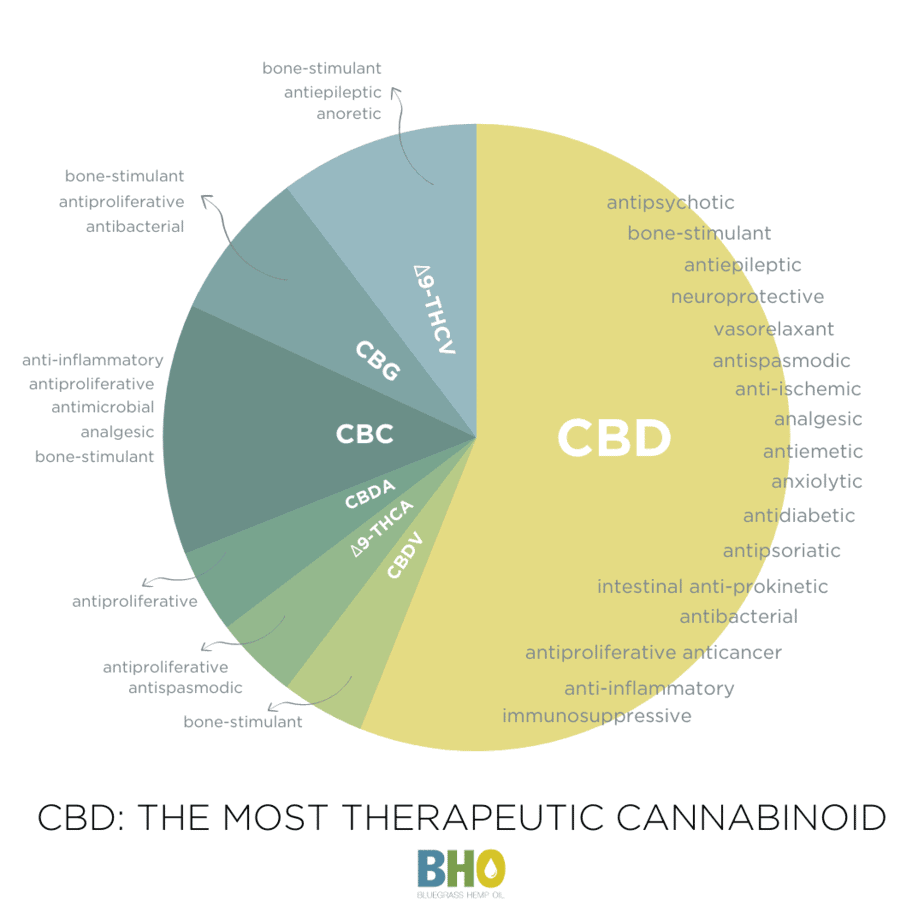
Types of Seizures CBD Can Help Treat
CBD oil has emerged as a potential alleviator for various forms of seizures, presenting a glimmer of hope for those exploring alternative therapeutic avenues. Studies delving into CBD for seizure management have unveiled its capability to diminish the occurrence and intensity of seizures, particularly in conditions like epilepsy.
At the core of CBD’s interaction lies the endocannabinoid system within the human anatomy, which orchestrates a myriad of physiological undertakings, encompassing seizure control.
Navigating through topics like CBD’s interplay with diverse seizure types, its role in epilepsy management, appropriate dosing for seizure control, and its comparison with conventional seizure medications is imperative for individuals considering CBD oil as a part of their seizure treatment regimen.
The efficacy of CBD may vary across different seizure types, underscoring the necessity for professional medical counsel to ascertain the suitable dosage and treatment blueprint.
While CBD oil showcases promise as an alternative to traditional seizure medications, it’s crucial to acknowledge that its efficacy may not extend to everyone, and the quest for comprehensive understanding regarding its effectiveness and potential adverse repercussions is ongoing.
Recognizing and Managing Grand Mal Seizures in Dogs: This detailed article focuses on grand mal seizures in dogs, exploring causes, management, and care. It explains that these seizures can be caused by factors like canine epilepsy, environmental triggers, genetic predisposition, and certain health conditions.
The signs of grand mal seizures in dogs, including convulsions and loss of consciousness, are described to aid in timely recognition and care. The article also discusses the management of seizures in older dogs, considering risks like potential injury during a seizure and secondary health issues. It provides insights into prevention strategies, including medication, lifestyle changes, and the avoidance of triggers, and addresses the hereditary aspect of these seizures in specific dog breeds.

CBD Dosage for Seizure Control
Effectively managing seizures entails finding an accurate dosage of CBD, which can be a nuanced process as dosage guidelines might vary based on individual factors and the severity of the seizures. It’s prudent to commence with a lower dosage, incrementally elevating it until an optimal amount is found that mitigates seizures without triggering undesired side effects.
In the realm of CBD for children with seizures, consultation with a healthcare professional specializing in pediatric epilepsy is crucial. They can offer invaluable guidance on appropriate dosages and monitor the child’s reaction to CBD treatment. It’s significant to mention that the FDA has endorsed CBD for the treatment of specific epilepsy variants such as Dravet syndrome and Lennox-Gastaut syndrome.
Although CBD is generally well-tolerated, there could be potential side effects like fatigue, appetite alterations, and diarrhea. Vigilant monitoring for any adverse responses and adjusting the dosage accordingly is essential. Additionally, CBD might interact with certain medications, hence it’s vital to communicate with your healthcare provider about all medications you’re currently on. For optimal CBD performance, it’s recommended to consult with a doctor about the possibility of weaning off certain medications, as interactions between epilepsy medications and CBD may occur. The best results have been observed when full spectrum CBD is taken independently without concurrent medications.
In conclusion, tailoring the right CBD dosage for seizure management necessitates a personalized approach and meticulous monitoring by a healthcare professional. CBD manifests promising results in treating seizures; however, adherence to proper dosage guidelines, awareness of potential side effects, and consideration of drug interactions are pivotal for ensuring safe and effective treatment.
Is CBD Effective for Seizure Reduction?
Researchers have discovered promising evidence that CBD can effectively reduce the frequency and severity of seizures. This is especially true for pediatric seizures, where CBD has shown significant effectiveness as a treatment option.
To add depth and complexity to the discussion, let’s explore some key points regarding CBD’s effectiveness in seizure reduction:
- CBD effectiveness in pediatric seizures: Studies have shown that CBD can be particularly beneficial in treating seizures in children. In fact, the FDA has approved a CBD-based medication, Epidiolex, specifically for the treatment of two rare forms of pediatric epilepsy. This highlights the potential of CBD as a safe and effective option for managing seizures in children. Research shows that full spectrum CBD oil provides better results.
- CBD as an adjunct therapy for seizure control: CBD has been found to complement traditional seizure medications, acting as an adjunct therapy to enhance their effectiveness. When used in combination with other anti-seizure medications, CBD has shown to further reduce seizure frequency and improve overall seizure control.
- Potential mechanisms of CBD action in seizure reduction: Researchers believe that CBD’s anti-seizure effects are due to its interaction with the endocannabinoid system in the body. CBD is thought to modulate the activity of certain receptors, such as CB1 and CB2 receptors, which play a role in regulating neuronal excitability. By influencing these receptors, CBD may help reduce abnormal neuronal activity and subsequently decrease the occurrence of seizures.
- Long-term effects of CBD on seizure management: While more research is needed to fully understand the long-term effects of CBD on seizure management, initial studies have shown promising results. Some studies have reported a sustained reduction in seizure frequency even after long-term use of CBD. This suggests that CBD may have a lasting impact on seizure control and could potentially provide long-term benefits for individuals with seizure disorders.
- CBD dosage optimization for seizure disorders: Finding the optimal dosage of CBD for seizure disorders is crucial for achieving the desired therapeutic effects. It’s recommended to start with a low dosage and gradually increase it until the desired results are achieved. Working closely with a healthcare professional experienced in CBD treatment can help ensure the dosage is tailored to individual needs and maximizes the benefits while minimizing any potential side effects.
CBD has shown promising effectiveness in reducing seizures, particularly in pediatric cases. As an adjunct therapy, CBD can enhance the effects of traditional seizure medications, and its potential mechanisms of action involve modulation of the endocannabinoid system. Long-term use of CBD may have sustained benefits for seizure management, and finding the right dosage is essential for optimizing its effectiveness.
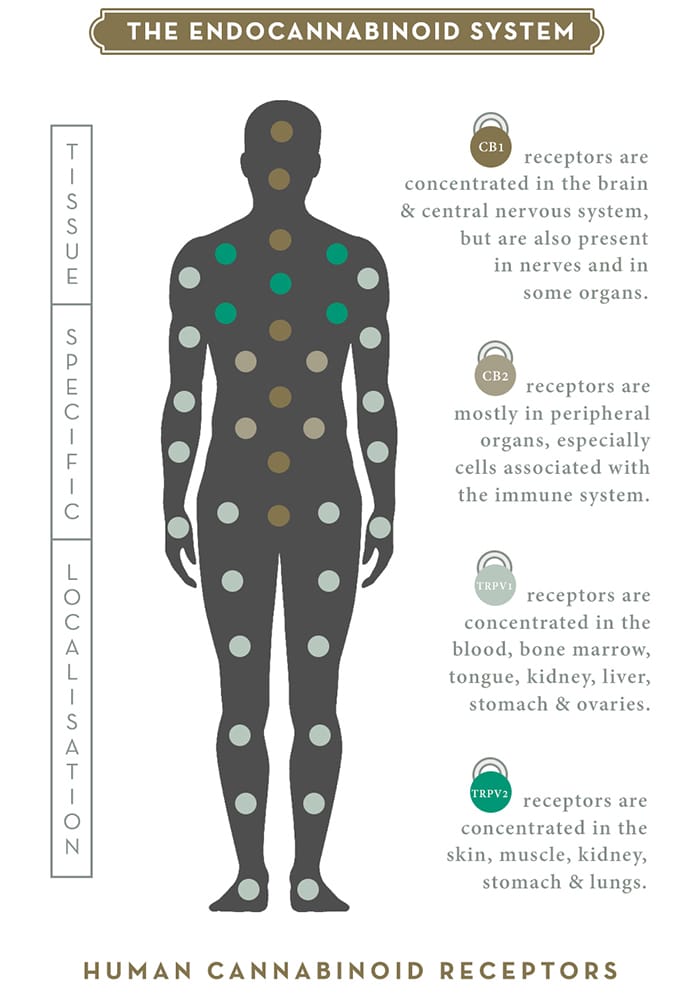
CBD vs. Traditional Seizure Medications
When it comes to managing seizures, traditional medications may have met their match with the potential benefits of CBD.
CBD, also known as cannabidiol, has gained attention in recent years for its potential as an alternative treatment for epilepsy and seizure reduction. Research on CBD’s effectiveness in managing seizures has shown promising results, with some studies suggesting that it may be a viable option for those who haven’t found success with traditional medications.
One of the advantages of using CBD as an alternative to traditional seizure medications is its potential for fewer side effects. Traditional medications for seizures can often come with a host of unwanted side effects, including drowsiness, dizziness, and cognitive impairments. CBD, on the other hand, has been found to have a good safety profile, with minimal side effects reported. This makes it a potentially attractive option for those who’re looking for a more natural and tolerable treatment.
Furthermore, CBD has been shown to have unique benefits that set it apart from traditional medications. In addition to its potential for seizure reduction, CBD has been found to have anti-inflammatory and neuroprotective properties. This means that it may not only help manage seizures but also provide additional benefits for overall brain health.
With more research being conducted on CBD and its potential benefits, it’s becoming increasingly clear that CBD may offer a new and promising option for those seeking relief from seizures.
Comprehensive Overview: Epilepsy Medications and Their Side Effects
| Medication Name | Common Side Effects | Serious Side Effects |
|---|---|---|
| Carbamazepine (Tegretol) | Dizziness, drowsiness, unsteadiness, nausea | Low blood counts, liver problems, serious rash |
| Gabapentin (Neurontin) | Dizziness, drowsiness, weight gain, tiredness | None known |
| Lamotrigine (Lamictal) | Dizziness, headache, blurred or double vision, rash | Serious rash (Stevens-Johnson syndrome), blood disorders |
| Levetiracetam (Keppra) | Dizziness, drowsiness, weakness | Behavioral changes, suicidal thoughts |
| Oxcarbazepine (Trileptal) | Dizziness, drowsiness, double vision, fatigue | Low sodium, skin rash, liver problems |
| Phenobarbital | Dizziness, drowsiness, irritability | Liver problems, blood disorders |
| Phenytoin (Dilantin) | Dizziness, drowsiness, unsteadiness | Gum overgrowth, liver problems, osteoporosis |
| Topiramate (Topamax) | Dizziness, drowsiness, weight loss, numbness and tingling | Kidney stones, glaucoma |
| Valproic Acid (Depakote) | Dizziness, drowsiness, upset stomach, hair loss | Liver problems, pancreatitis, blood disorders |
| Zonisamide (Zonegran) | Dizziness, drowsiness, loss of appetite, weight loss | Kidney stones, serious rash |
| Eslicarbazepine (Aptiom) | Dizziness, drowsiness, headache, nausea, vomiting | Low sodium, skin rash, liver problems |
| Lacosamide (Vimpat) | Dizziness, headache, double vision | Heart rhythm problems |
| Perampanel (Fycompa) | Dizziness, drowsiness, irritability | Behavioral changes, fall risk |
| Rufinamide (Banzel) | Dizziness, fatigue, nausea | Shortened QT interval, multi-organ hypersensitivity |
| Tiagabine (Gabitril) | Dizziness, depression, nervousness | Status epilepticus (continuous seizures) |
| Vigabatrin (Sabril) | Dizziness, weight gain, tremor | Vision loss |
| Clobazam (Onfi) | Drowsiness, drooling, constipation | Aggression, infections |
| Clonazepam (Klonopin) | Drowsiness, dizziness, fatigue | Depression, behavioral problems |
| Diazepam (Valium) | Drowsiness, fatigue, muscle weakness | Respiratory depression, addiction |
| Ethosuximide (Zarontin) | Nausea, vomiting, drowsiness | Blood disorders, liver problems |
| Felbamate (Felbatol) | Insomnia, headache, anorexia | Liver failure, aplastic anemia |
| Lorazepam (Ativan) | Drowsiness, dizziness | Respiratory depression, addiction |
| Methsuximide (Celontin) | Drowsiness, dizziness, nausea | Blood disorders, liver problems |
| Primidone (Mysoline) | Drowsiness, dizziness, nausea | Blood disorders, lupus-like syndrome |
| Stiripentol (Diacomit) | Drowsiness, loss of appetite, weight loss | None known |
| Cannabidiol (Epidiolex) | Diarrhea, sleepiness, poor appetite | Liver problems |
| Acetazolamide (Diamox) | Numbness and tingling, fatigue, loss of appetite | Liver problems, blood disorders |
| Fosphenytoin (Cerebyx) | Dizziness, drowsiness, nausea | Cardiovascular problems, liver problems |
| Pregabalin (Lyrica) | Dizziness, drowsiness, weight gain | Muscle problems, suicidal thoughts |
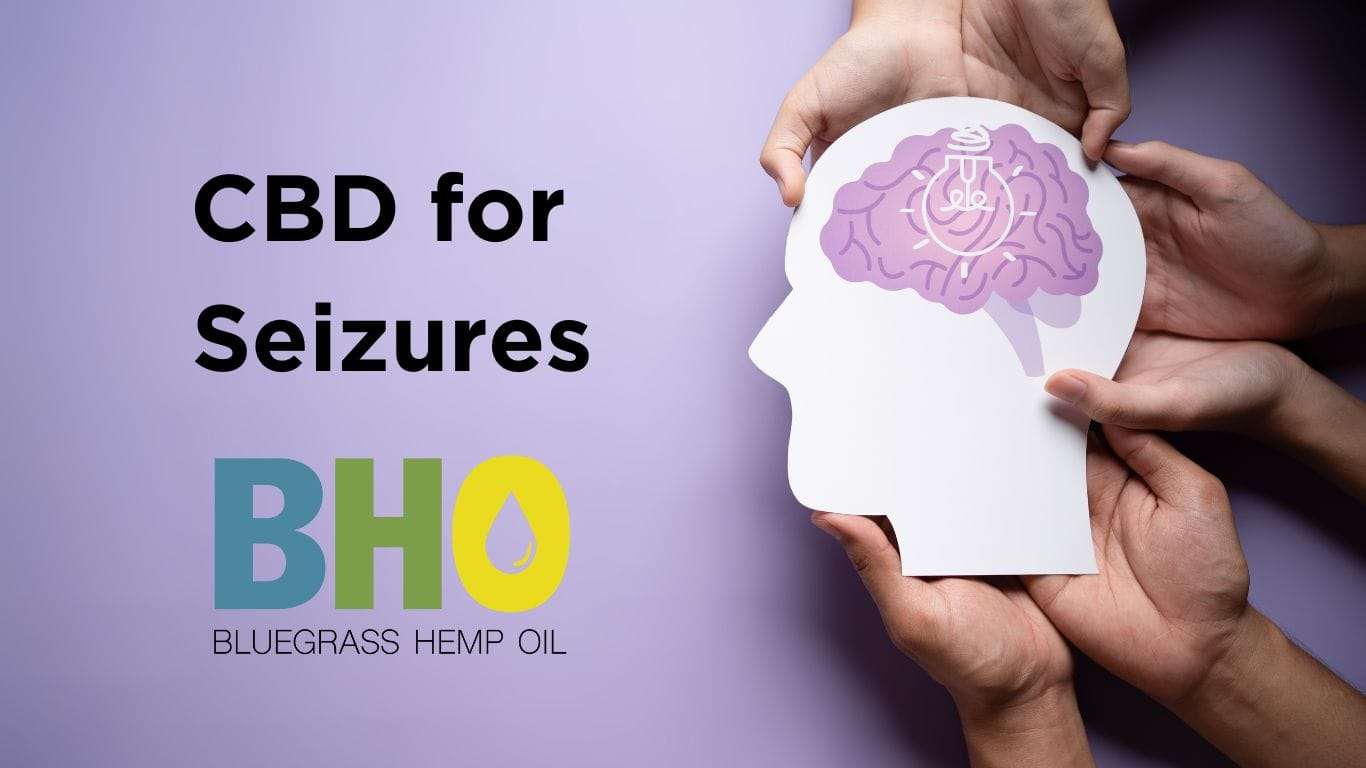
Research on CBD and Seizure Disorders
For those keen on exploring the nexus between CBD and seizure disorders, a spectrum of seizures like generalized tonic-clonic seizures, absence seizures, myoclonic seizures, atonic seizures, and focal seizures has been under the scientific radar. The investigative lens has been on discerning CBD’s capability in tempering the occurrence and intensity of these seizures, fostering a beacon of hope for individuals grappling with seizure disorders.
Notably, the Food and Drug Administration (FDA) has greenlit Epidiolex CBD oil as a therapeutic avenue for rare epilepsy variants such as Dravet syndrome and Lennox-Gastaut syndrome. However, the hefty price tag on Epidiolex, coupled with its reported lesser efficacy compared to full-spectrum CBD oils like Genesis Blend Full Spectrum CBD Oil, casts a shadow on its therapeutic appeal. The scrutiny on Epidiolex extends to its formulation—an isolated cannabinoid mingled with alcohol and sucrose—which has been linked to potential liver detriment. Thus, pivoting towards natural full-spectrum CBD emerges as a prudent choice for harnessing the holistic benefits sans the adverse ramifications.
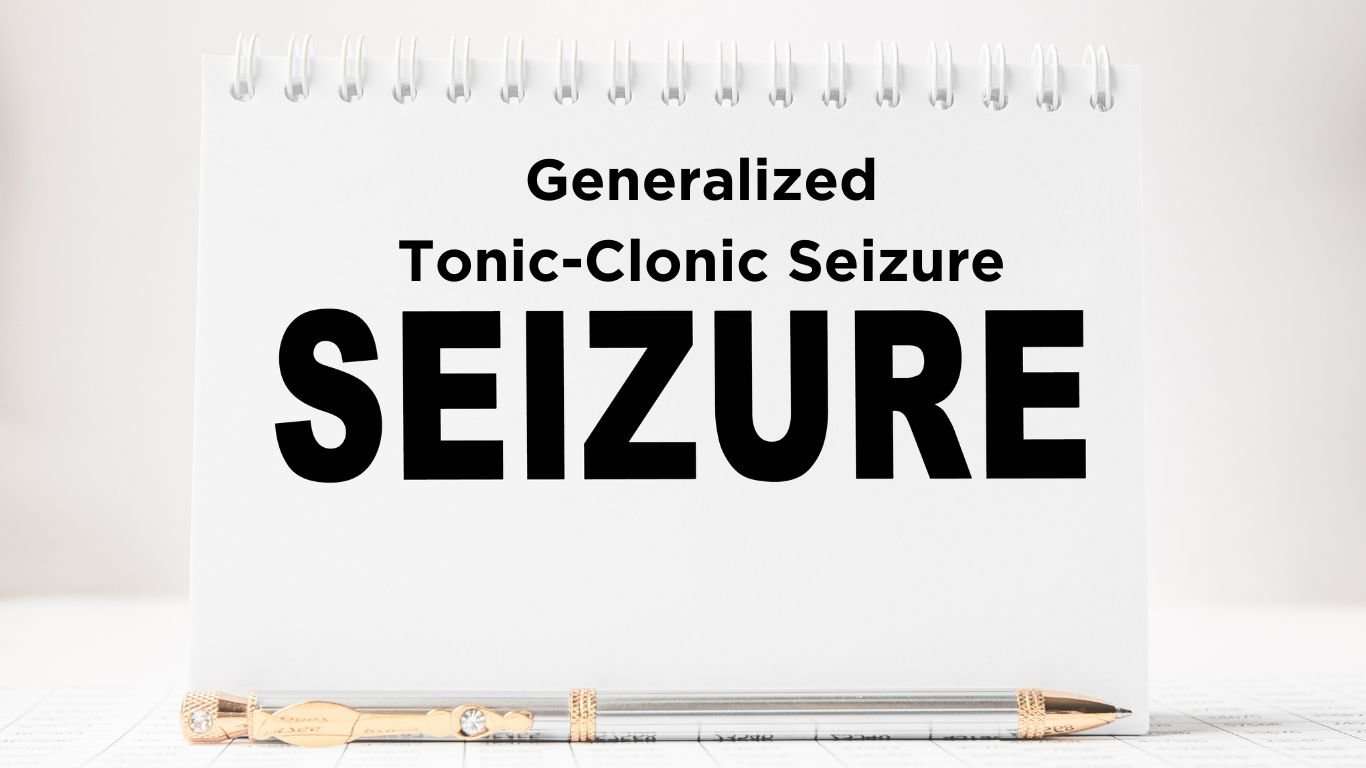
Generalized tonic-clonic seizures
To help manage your generalized tonic-clonic seizures, try incorporating Genesis Blend CBD oil into your daily routine. This full spectrum CBD oil is specifically designed to provide relief and support for individuals with various seizure disorders.
With its high concentration of natural cannabinoids and terpenoids, this CBD hemp extract offers a rich blend of compounds that work together to effectively manage seizures.
When it comes to CBD treatment for seizure management, research has shown promising results. Studies have found that CBD can reduce the frequency and severity of seizures in individuals with different seizure types, including generalized tonic-clonic seizures.
The effectiveness of CBD varies from person to person, so finding the right dosage is crucial. It’s recommended to start with 1 ml of Genesis Blend CBD oil twice a day for best results. Place the oil under your tongue and let it sit for 20-30 seconds before swallowing. This allows for better absorption and maximizes the benefits of the CBD oil.
Incorporating Genesis Blend CBD oil into your daily routine can bring about positive changes in your seizure management. Here are a few emotional benefits you may experience:
- Increased peace of mind: Knowing that you’re actively taking steps to manage your seizures can bring a sense of relief and peace of mind.
- Improved quality of life: By reducing the frequency and severity of seizures, CBD oil can help improve your overall quality of life, allowing you to engage in activities you enjoy without constant worry.
- Hope for the future: Research on CBD and seizure disorders is ongoing, and the positive results are a source of hope for individuals with generalized tonic-clonic seizures. Trying Genesis Blend CBD oil gives you the opportunity to be part of this evolving field of research and potentially find a treatment that works best for you.
Remember, it’s important to consult with your healthcare provider before starting any CBD treatment regimen to ensure it’s the right option for you.

Myoclonic seizures
Discover how Genesis Blend CBD oil can potentially provide relief for myoclonic seizures, allowing you to find a natural solution that may improve your quality of life.
Myoclonic seizures are a type of epilepsy characterized by sudden, brief jerks or twitches in the muscles. These seizures can be disruptive and debilitating, affecting your daily activities and overall well-being.
CBD, or cannabidiol, has been gaining attention as a potential treatment for epilepsy, including myoclonic seizures. Research suggests that CBD may have anticonvulsant properties, meaning it could help reduce the frequency and severity of seizures. Unlike traditional medications for epilepsy, CBD is derived from natural sources and has a lower risk of side effects.
When it comes to using CBD for seizures, finding the right dosage is crucial. Genesis Blend CBD oil provides a convenient and consistent way to incorporate CBD into your daily routine. With a suggested starting dose of 1 ml twice a day, you can easily adjust the dosage to find what works best for you. By placing the oil under your tongue and letting it sit for 20-30 seconds before swallowing, you allow for efficient absorption of the CBD into your bloodstream.
Choosing CBD as a treatment for myoclonic seizures may offer several benefits. Not only does CBD potentially provide relief from seizures, but it may also help with other symptoms commonly associated with epilepsy, such as anxiety and sleep disturbances. Additionally, CBD has a non-intoxicating effect, meaning it does not produce the ‘high’ commonly associated with cannabis.
While CBD can be a promising option for managing myoclonic seizures, it’s important to consult with a healthcare professional before starting any new treatment. They can help guide you in finding the right dosage and monitor your progress to ensure the best possible outcome.
With Genesis Blend CBD oil, you have the opportunity to explore a natural alternative that may improve your seizure control and overall quality of life.

Absence seizures
Incorporating Genesis Blend CBD oil into your daily routine may provide relief and support for individuals experiencing absence seizures, allowing you to potentially find a treatment that works best for you. CBD for absence seizures has gained attention as a potential alternative to traditional seizure medications. Research on CBD and absence seizures has shown promising results, indicating that CBD may help in seizure management.
When it comes to CBD dosage for seizure control, it’s important to start with a low dose and gradually increase it until you find the right balance for your body. It’s recommended to start with 1 ml of Genesis Blend CBD oil twice a day for best results. Simply place the oil under your tongue and let it sit for 20-30 seconds before swallowing. This method allows for quick absorption into your bloodstream.
One of the advantages of using CBD for seizure management is that it’s non-intoxicating and has a mild natural flavor. Unlike traditional seizure medications, CBD doesn’t produce the same side effects, such as drowsiness or cognitive impairment. However, it’s important to consult with a healthcare professional before incorporating CBD into your treatment plan, especially if you’re currently taking any other medications. They can provide guidance on the best approach for your specific condition and help monitor your progress.
With further research and understanding, CBD may prove to be a valuable tool in managing absence seizures and improving overall quality of life.

Atonic seizures
When dealing with atonic seizures, you may feel like your body is suddenly unplugged, leaving you vulnerable and unsupported.
Atonic seizures, also known as drop attacks, are characterized by a sudden loss of muscle tone, causing the person to collapse or fall. These seizures can be particularly dangerous as they can occur at any time, even when you’re engaged in everyday activities like walking or standing.
It can be a frightening experience, not only for you but also for your loved ones who may witness it.
Fortunately, CBD has shown promise in helping with seizure control, including atonic seizures. CBD, or cannabidiol, is a natural compound found in cannabis plants that’s been found to have anticonvulsant properties. It works by interacting with the endocannabinoid system, which plays a role in regulating various bodily functions, including seizure control.
When it comes to using CBD for seizure reduction, finding the right dosage is crucial. It’s recommended to start with a low dose and gradually increase it until you find the optimal amount that works for you. It’s important to note that everyone’s body is different, so what works for one person may not work for another. Consulting with a healthcare professional experienced in CBD use for seizure disorders can help guide you in finding the right dosage and monitor your progress.
If you’re dealing with atonic seizures, CBD may offer a potential solution for seizure control. It’s important to find the right dosage that works for you and consult with a healthcare professional experienced in CBD use for seizure disorders. With proper guidance and monitoring, CBD could potentially help reduce the frequency and severity of your atonic seizures, providing you with a sense of support and stability.
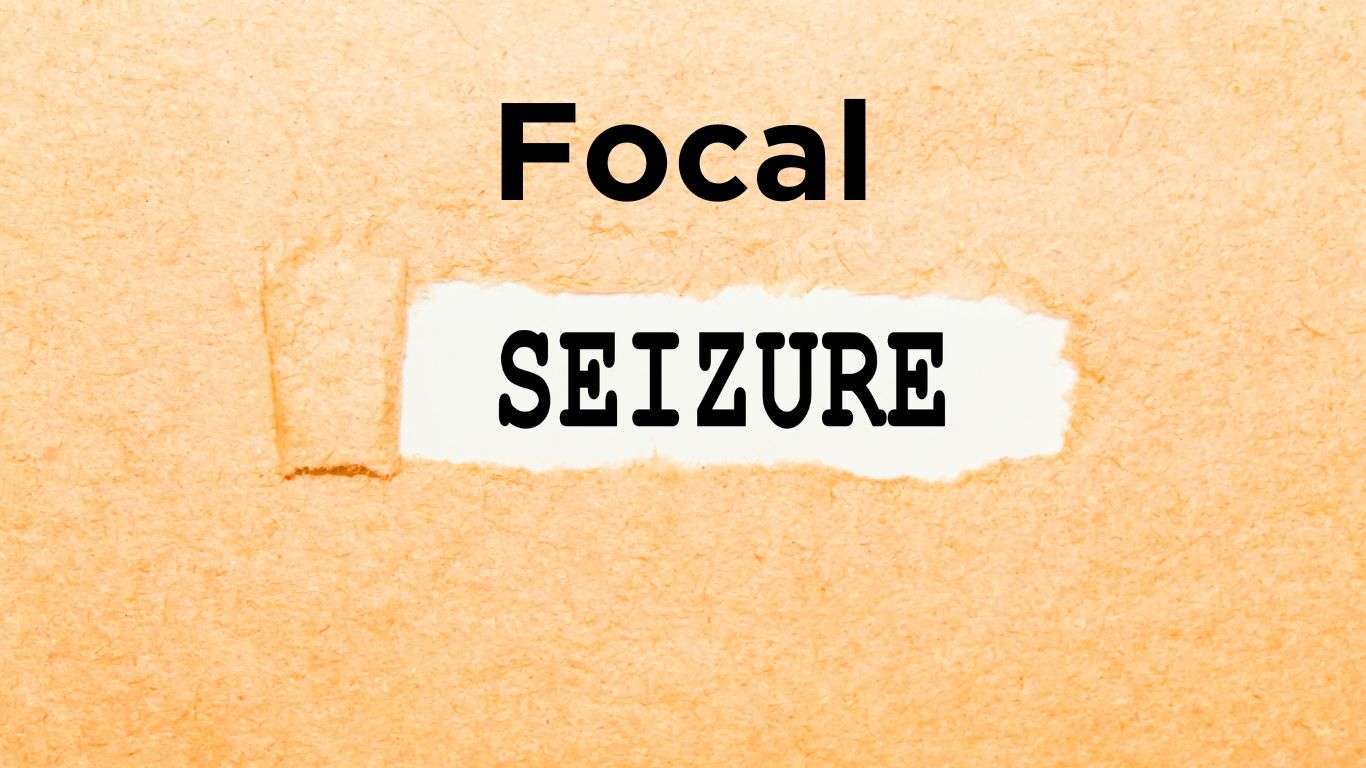
Focal seizures
Focal seizures, also known as partial seizures, can cause a sudden alteration in consciousness or unusual sensations experienced by individuals. These seizures are characterized by abnormal electrical activity in a specific area of the brain.
If you or someone you know is dealing with focal seizures, CBD treatment may offer a potential solution for seizure management. Research in the field of epilepsy has shown promising results when it comes to the use of CBD as an adjunct therapy for seizure disorders.
When considering CBD dosage for focal seizures, it is important to consult with a healthcare professional who specializes in epilepsy. They can help determine the appropriate dosage based on factors such as age, weight, and the severity of the seizures. It is also important to note that CBD should be used in conjunction with other seizure medications, as it’s not intended to replace them.
Epilepsy research has shown that CBD may help reduce the frequency and severity of focal seizures. CBD interacts with the body’s endocannabinoid system, which plays a role in regulating brain activity and controlling seizures. By targeting specific receptors in the brain, CBD may help stabilize electrical activity and prevent the occurrence of focal seizures.
CBD treatment shows promise in the management of focal seizures. However, it’s crucial to consult with a healthcare professional to determine the appropriate CBD dosage and to ensure that it’s used in conjunction with other seizure medications for optimal results. Research in the field of epilepsy continues to shed light on the potential benefits of CBD, offering hope for individuals living with seizure disorders.
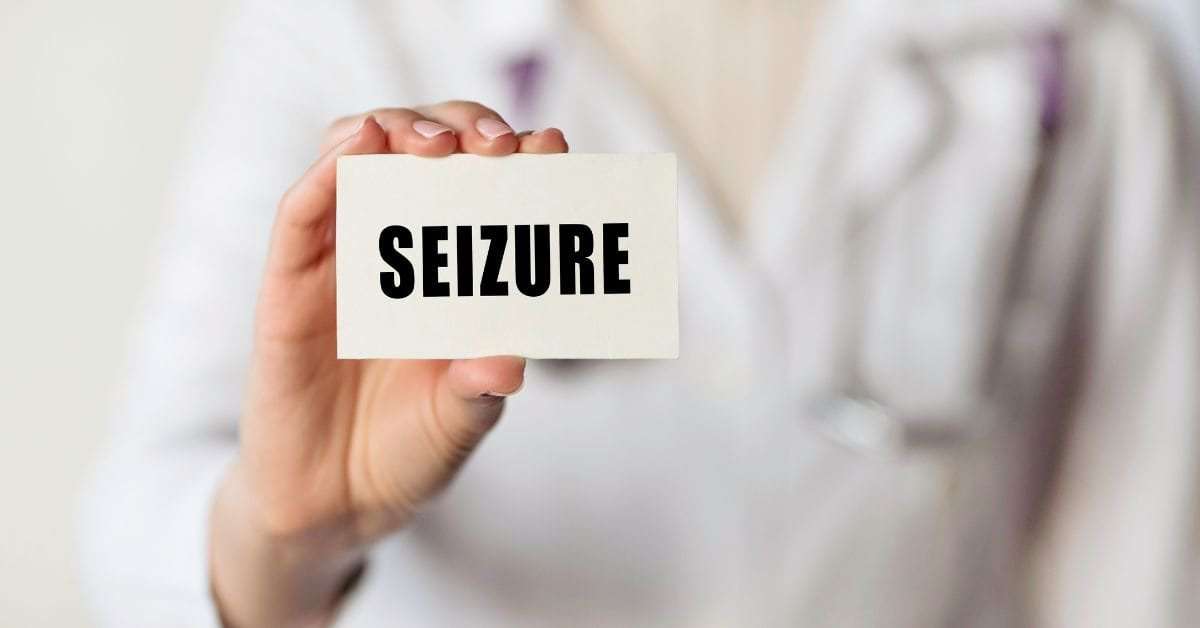
Simple partial seizures
Simple partial seizures, also known as focal seizures without loss of consciousness, can cause a sudden alteration in perception or unusual sensations experienced by individuals. These seizures are characterized by a specific area of the brain being affected, leading to localized symptoms such as twitching, tingling, or a change in sensory perception.
While simple partial seizures may not result in a loss of consciousness, they can still be disruptive and distressing for those experiencing them.
When it comes to managing simple partial seizures, CBD has shown promise as a potential treatment option. CBD, or cannabidiol, is a naturally occurring compound found in cannabis plants. Research on CBD and seizure disorders suggests that it may help reduce the frequency and severity of seizures. Many individuals have reported positive outcomes with CBD for seizure management, citing a decrease in seizure activity and an improvement in overall quality of life.
Determining the appropriate CBD dosage for seizure control can be a complex process, as it varies from person to person. It’s recommended to start with a low dose and gradually increase it until the desired effects are achieved. It’s important to consult with a healthcare professional who specializes in CBD treatment for seizures to determine the most effective dosage for individual needs.
CBD for seizure management is often considered as an alternative to traditional seizure medications. While traditional medications can be effective, they may also come with unwanted side effects. CBD, on the other hand, is generally well-tolerated and has a lower risk of adverse effects. However, it’s important to note that CBD should be used under medical supervision and in conjunction with other seizure management strategies.
Overall, research on CBD and seizure disorders is ongoing, and more studies are needed to fully understand its potential benefits and limitations. However, for individuals experiencing simple partial seizures, CBD may offer a promising option for seizure management. It’s important to consult with a healthcare professional to determine the best course of treatment and to ensure safe and effective use of CBD for seizure control.

Complex partial seizures
Now that you understand simple partial seizures, let’s dive into complex partial seizures. These seizures, also known as focal seizures, originate in a specific area of the brain and can cause a wide range of symptoms.
Unlike the brief and localized nature of simple partial seizures, complex partial seizures can spread to other parts of the brain, leading to altered consciousness and a loss of awareness.
When it comes to treating epilepsy and managing seizures, CBD has shown promising results in recent research. Studies have indicated that CBD may help reduce the frequency and severity of seizures in individuals with epilepsy, including those with complex partial seizures. The use of CBD as an alternative treatment for seizures is gaining traction, as it provides a natural and non-intoxicating option for individuals seeking relief.
If you’re considering CBD as part of your seizure management strategy, it’s essential to follow dosage guidelines. Start with a low dose and gradually increase it until you find the optimal amount that provides relief. CBD oil, such as our Genesis Blend CBD oil, can be taken orally by placing it under your tongue for 20-30 seconds before swallowing. This allows for efficient absorption into your system. Remember, everyone’s body is unique, so finding the right dosage may take some trial and error.
As you explore alternative seizure treatments, keep in mind that CBD offers a full spectrum of cannabinoids and terpenes, which can work synergistically with your endocannabinoid system. This rich blend of natural compounds sets our Genesis Blend CBD oil apart from other full-spectrum CBD brands on the market.
So, take a step forward in your seizure management journey and consider incorporating CBD into your treatment plan. Empower yourself with the potential benefits of CBD and discover a natural approach to finding relief from complex partial seizures.
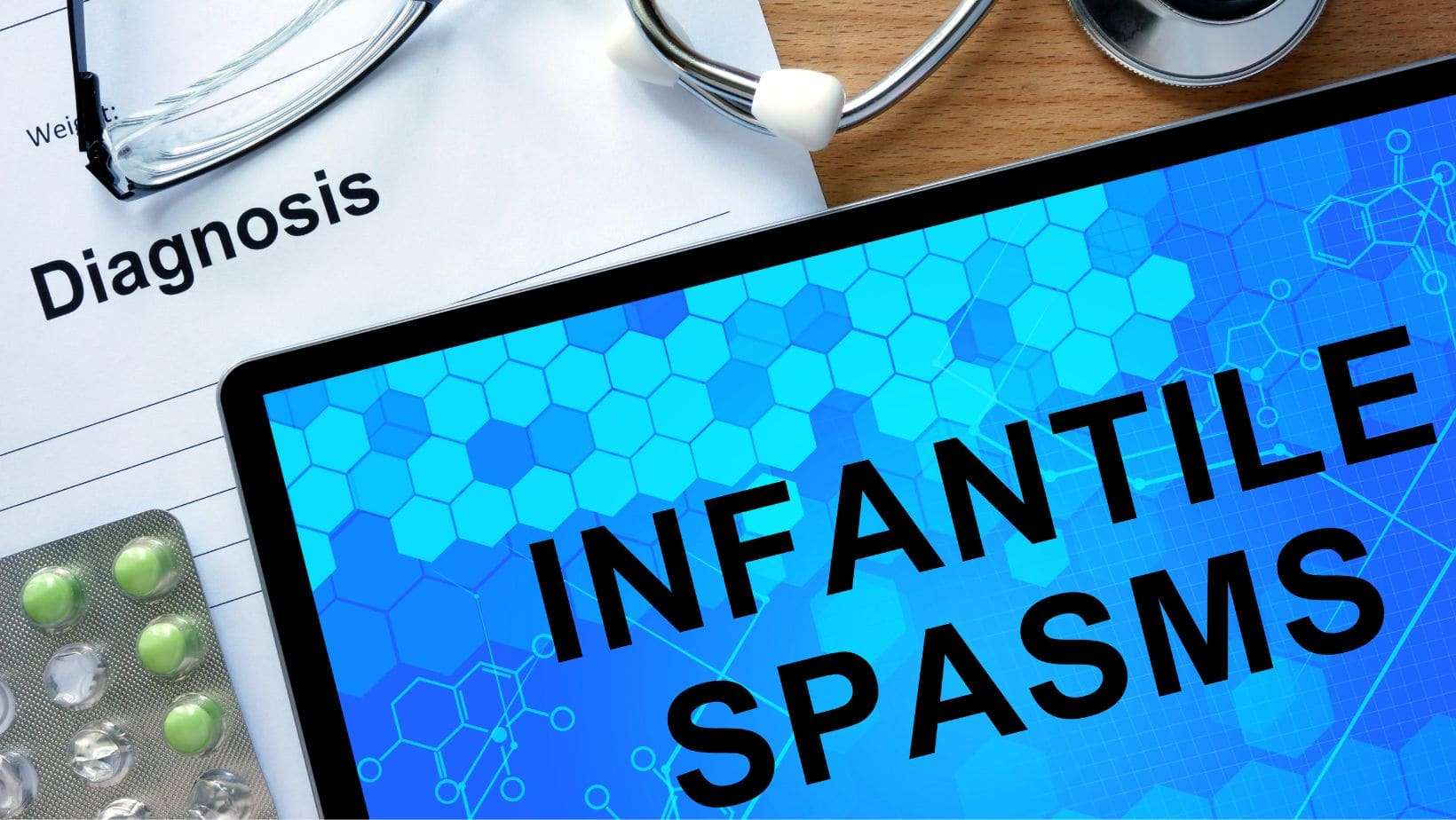
Infantile spasms
When it comes to managing infantile spasms, exploring alternative treatments can provide hope and potential relief. One alternative that has gained attention is the use of CBD for infantile spasms.
CBD, or cannabidiol, is a compound found in cannabis plants that has been studied for its potential therapeutic effects. Research on CBD and seizure disorders has shown promising results, with some studies suggesting that CBD may help reduce the frequency and severity of seizures in children with infantile spasms.
One of the advantages of using CBD for seizure management is that it’s non-intoxicating, meaning it doesn’t produce the psychoactive effects typically associated with cannabis use. This makes CBD a potentially safer option for children compared to traditional seizure medications, which can often have significant side effects.
However, it’s important to note that the use of CBD for infantile spasms should be done under the guidance of a healthcare professional, as the dosage and administration may vary for each individual.
Research on CBD and seizure disorders is ongoing, and more studies are needed to fully understand its effectiveness and safety. However, the potential benefits of CBD for infantile spasms offer hope for families seeking alternative treatments for their children.
If you’re considering using CBD for seizure control, it’s important to consult with your healthcare provider to determine the appropriate dosage and to ensure it’s used in conjunction with any other prescribed medications.
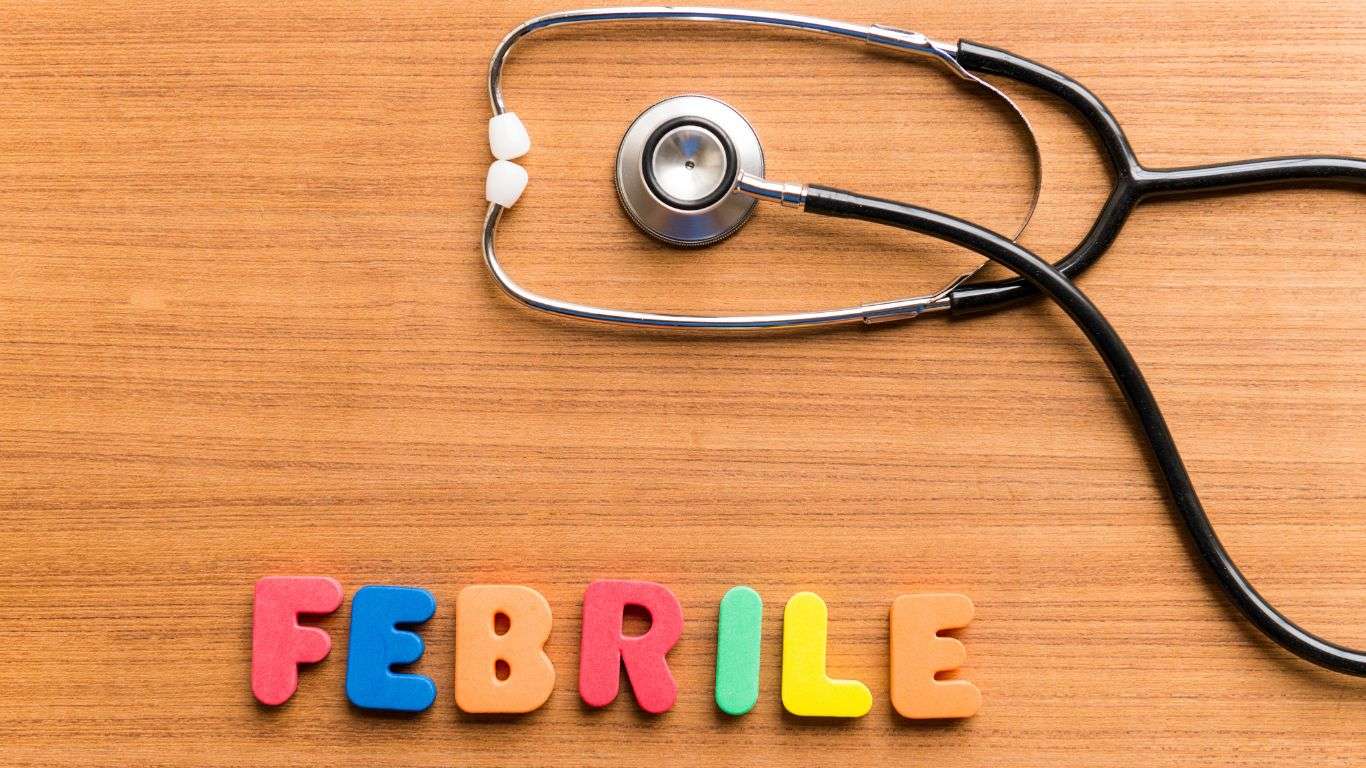
Febrile seizures
If your child experiences febrile seizures, exploring alternative treatments can provide potential relief and hope. One potential alternative treatment that’s gained attention is CBD. CBD, or cannabidiol, is a compound found in cannabis plants that’s been studied for its potential therapeutic benefits.
While more research is needed, some studies suggest that CBD may help reduce the frequency and severity of seizures in children with certain types of epilepsy, including febrile seizures.
When considering CBD as an alternative treatment for febrile seizures in children, it’s important to start with the right dosage. The optimal CBD dosage for febrile seizures may vary depending on the child’s age, weight, and the severity of their seizures. It’s recommended to start with a low dose and gradually increase it until the desired effects are achieved. Consulting with a healthcare professional experienced in CBD treatments can help determine the appropriate dosage for your child.
While CBD shows promise as an alternative treatment for febrile seizures, it’s important to consider the potential long-term effects. As with any medication or treatment, there may be risks and side effects associated with CBD use. More research is needed to fully understand the long-term effects of CBD on febrile seizures in children. It’s crucial to monitor your child’s response to CBD and consult with their healthcare provider regularly to ensure its safety and effectiveness as a treatment option.
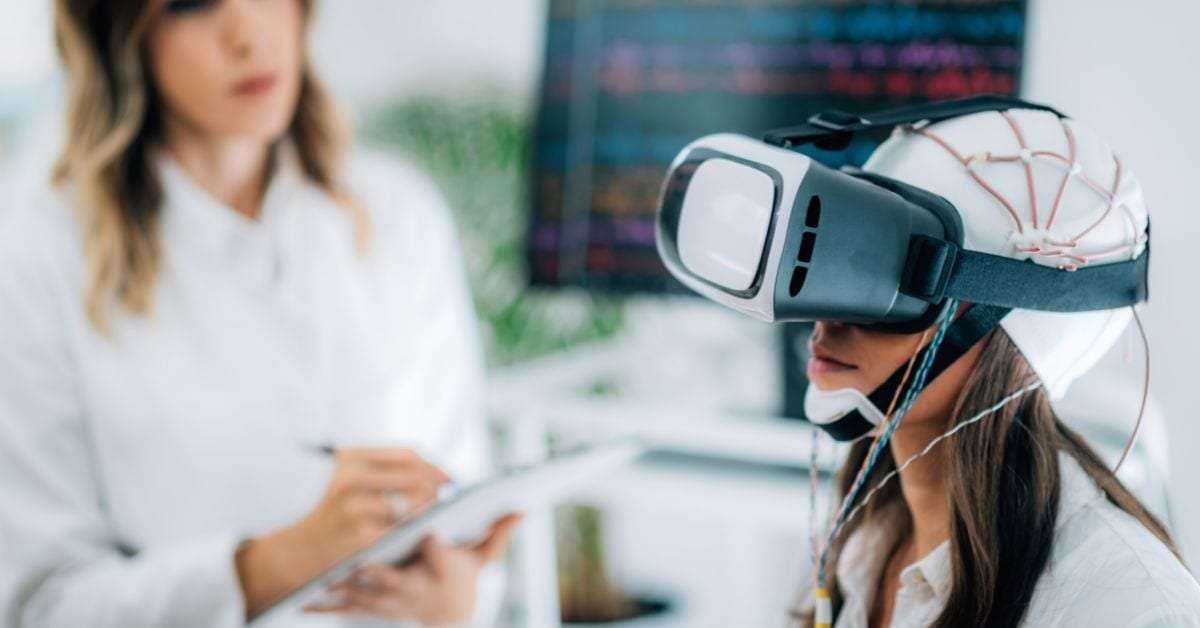
Reflex seizures
Exploring alternative treatments for reflex seizures can provide potential relief and hope for those seeking natural remedies. Reflex seizures are a type of epilepsy characterized by seizures that are triggered by specific stimuli, such as flashing lights or certain sounds. These seizures can be disruptive and have a significant impact on daily life.
However, emerging research suggests that CBD, or cannabidiol, may hold promise as an effective anticonvulsant for seizure management. CBD, a compound derived from the cannabis plant, has gained attention for its potential therapeutic benefits in various medical conditions, including epilepsy.
Studies have shown that CBD may have anticonvulsant properties and can help reduce the frequency and severity of seizures. It is believed that CBD interacts with the endocannabinoid system in the body, which plays a role in regulating neuronal activity and reducing inflammation.
When it comes to using CBD for seizures, finding the right dosage is crucial. It’s recommended to start with a low dose and gradually increase it until the desired effects are achieved. The suggested use for CBD oil is to start with 1 ml twice a day for best results. Placing the oil under the tongue and letting it sit for 20-30 seconds before swallowing allows for optimal absorption. It’s important to note that CBD is non-intoxicating, meaning it doesn’t produce the psychoactive effects commonly associated with cannabis use.
CBD shows promise as an alternative treatment for reflex seizures. As more research is conducted, CBD may become a viable option for individuals seeking natural remedies for seizure management. It’s important to consult with a healthcare professional to determine the appropriate dosage and to ensure CBD is used as part of a comprehensive treatment plan.
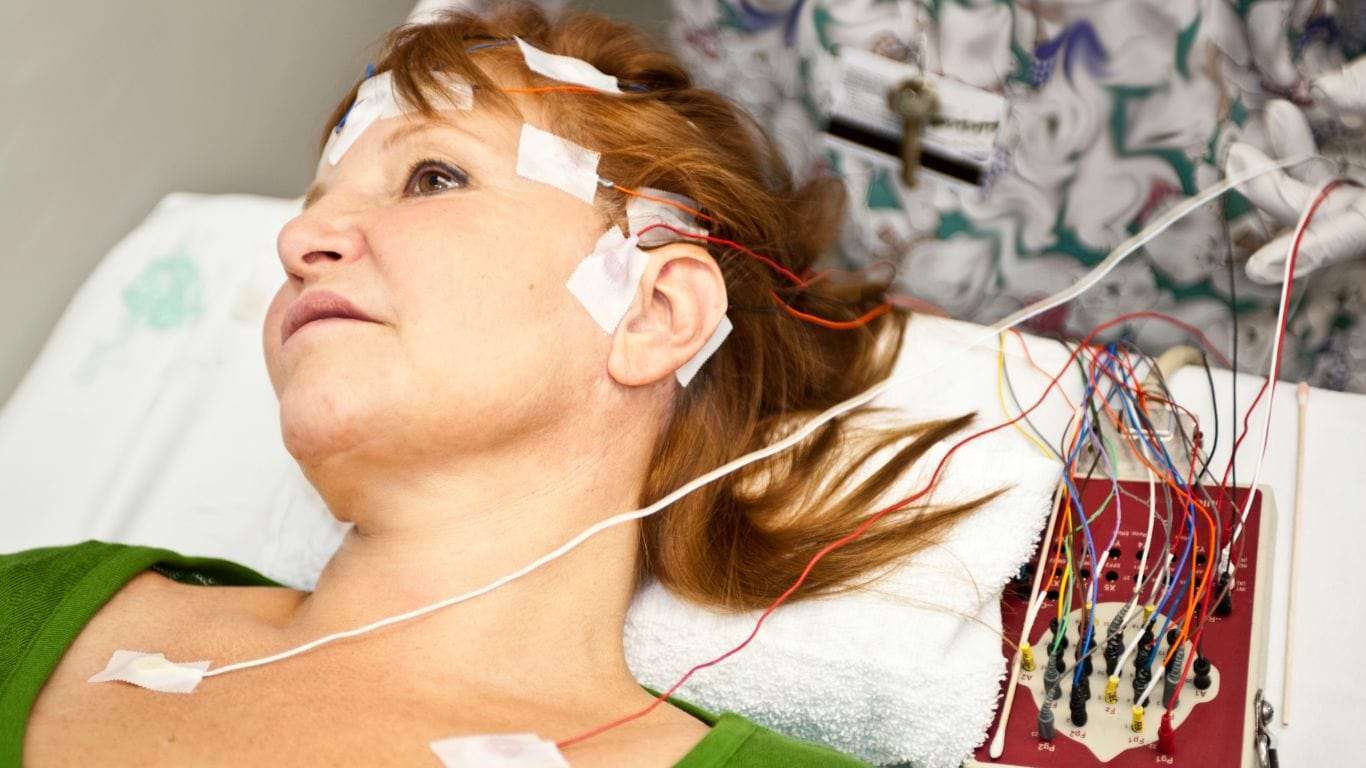
Status epilepticus
For those experiencing status epilepticus, finding effective treatment options is crucial to managing and preventing prolonged seizures. Status epilepticus is a medical emergency characterized by continuous or recurrent seizures that last longer than five minutes or occur without recovery in between. It’s a life-threatening condition that requires immediate intervention.
In such cases, CBD has shown promise as an emergency treatment for managing seizures. CBD, or cannabidiol, is a natural compound found in cannabis plants that’s been studied for its potential anticonvulsant properties. Research suggests that CBD may act as a rescue medication, providing acute seizure control during status epilepticus. It’s been found to interact with the endocannabinoid system in the body, which plays a role in regulating brain activity and controlling seizures.
CBD has been shown to reduce seizure frequency and intensity in various forms of epilepsy, including those that are resistant to conventional antiepileptic drugs. This makes it a potentially valuable option for individuals experiencing status epilepticus, as it may help to quickly halt seizures and prevent further complications.
While more research is needed to fully understand the effectiveness and safety of CBD for managing seizures, preliminary studies and anecdotal evidence suggest that it may be a beneficial adjunct therapy. It’s important to note that CBD shouldn’t replace standard emergency medical care for status epilepticus. However, in consultation with a healthcare professional, CBD may be considered as an additional treatment option to help control seizures and improve overall seizure management.

Benign Rolandic Epilepsy
When dealing with Benign Rolandic Epilepsy, you’ll find comfort knowing there are potential treatment options available to help manage and control your condition.
One potential treatment option that has gained attention in recent years is CBD treatment. CBD, or cannabidiol, is a compound found in cannabis plants that has been shown to have anti-seizure properties. Many individuals with epilepsy have reported positive effects from using CBD for seizure management.
When considering CBD treatment for Benign Rolandic Epilepsy, it’s important to consult with a healthcare professional who is knowledgeable about CBD and its potential benefits. They can provide guidance on the appropriate CBD dosage and help you determine if CBD is the right choice for you.
It’s also important to note that while CBD has shown promise in managing seizures, it shouldn’t be used as a substitute for traditional medications. It’s always recommended to continue taking any prescribed medications and work with your healthcare team to find the best treatment plan for your specific needs.
Research on CBD and its effects on epilepsy is still ongoing, but early studies have shown promising results. CBD has been found to reduce the frequency and severity of seizures in some individuals, and it may also have other benefits such as improved sleep and mood. However, more research is needed to fully understand the potential benefits and risks of CBD treatment for Benign Rolandic Epilepsy.
In the meantime, it’s important to approach CBD treatment with caution and to seek guidance from a healthcare professional.
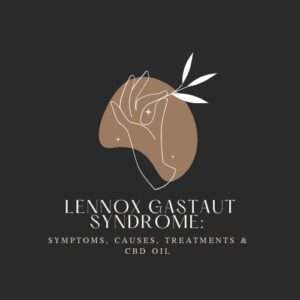
Lennox-Gastaut Syndrome
Lennox-Gastaut syndrome, a devastating and debilitating condition, requires effective treatment options to alleviate its impact on daily life. When it comes to managing seizures in Lennox-Gastaut syndrome, finding the right treatment plan is crucial.
While there’s no cure for this syndrome, there are various options available to help reduce the frequency and severity of seizures. One common approach is the use of antiepileptic drugs (AEDs) to control seizures. These medications work by suppressing abnormal brain activity and can be effective in managing seizures in some individuals with Lennox-Gastaut syndrome. However, it’s important to note that not all AEDs may be effective for everyone, and finding the right medication or combination of medications may require some trial and error.
In addition to medication, supportive therapies can also play a significant role in managing seizures and improving overall quality of life. Physical therapy, occupational therapy, and speech therapy can help individuals with Lennox-Gastaut syndrome develop and enhance their motor skills, communication abilities, and overall independence. These therapies can provide valuable support in coping with the physical and cognitive challenges associated with the syndrome.
Furthermore, ongoing research advancements in Lennox-Gastaut syndrome treatment offer hope for improved outcomes. Scientists and medical professionals are constantly exploring new therapies and interventions that may help reduce the frequency and severity of seizures in individuals with this condition. From investigational drugs to novel surgical techniques, the field of epilepsy research is continuously evolving, providing potential avenues for improved management of Lennox-Gastaut syndrome.
Overall, while Lennox-Gastaut syndrome presents significant challenges, there are treatment options available to help manage seizures and improve daily life. Finding the right combination of medications, utilizing supportive therapies, and staying updated on the latest research advancements are all essential components in the ongoing battle against this devastating condition.

Dravet Syndrome
Now that you’ve learned about the potential benefits of CBD for managing seizures in individuals with Lennox-Gastaut syndrome, let’s explore its effectiveness in another type of epilepsy called Dravet syndrome.
Dravet syndrome is a rare and severe form of epilepsy that typically starts in infancy. It’s characterized by frequent and prolonged seizures that are often resistant to conventional antiepileptic medications.
When it comes to Dravet syndrome treatment, CBD has shown promising results in reducing seizure frequency and severity. Numerous studies have demonstrated the anticonvulsant effects of CBD in patients with Dravet syndrome, leading to improved seizure control and overall quality of life.
CBD, a non-intoxicating compound derived from the cannabis plant, interacts with the body’s endocannabinoid system to regulate neural activity and reduce excitability in the brain, which is crucial in managing seizures.
Using CBD for seizures in individuals with Dravet syndrome has become increasingly popular due to its potential to provide relief when other treatments have failed. Many patients and their families have reported significant improvements in seizure control and a reduction in the frequency and duration of seizures.
CBD offers a more natural and holistic approach to managing seizures compared to traditional medications, which often come with numerous side effects. However, it’s important to consult with a healthcare professional experienced in CBD and epilepsy to determine the appropriate dosage and ensure its safe usage.
CBD has shown promise in managing seizures associated with Dravet syndrome. By incorporating CBD into the treatment plan, individuals with Dravet syndrome may experience improved seizure control and an enhanced quality of life.
It’s crucial to explore this alternative treatment option and consult with a healthcare professional to determine the most effective and safe approach to using CBD for seizures.
FAQ's
Q: Can CBD oil completely cure seizures?
CBD oil has shown promise in reducing the frequency and severity of seizures in some individuals. While it may not completely cure seizures, CBD oil can be an effective treatment option when used in conjunction with other medications. The effectiveness of CBD oil for seizures can vary depending on the dosage and individual response. It’s important to consult with a healthcare professional to determine the appropriate CBD dosage and to monitor the long-term effects.
CBD research is still ongoing, but there’s growing evidence supporting its potential as an alternative treatment for seizures. In addition to CBD oil, there are other alternative treatments available that may also be beneficial in managing seizures.
Q: Are there any potential side effects of using CBD for seizures?
When it comes to using CBD for seizures, it’s important to consider the potential side effects.
While CBD is generally well-tolerated, some people may experience drowsiness, dry mouth, or changes in appetite. However, these side effects are usually mild and temporary.
It’s also important to note that the effectiveness of CBD in treating seizures can vary depending on the individual and the type of seizures they have.
Research on CBD for seizures is ongoing, and there have been promising updates in this field.
The dosage of CBD for seizures can also vary, but starting with 1 ml twice a day is a suggested starting point.
It’s worth mentioning that Genesis Blend CBD oil is a full spectrum CBD oil that contains a rich blend of cannabinoids and terpenes, which may work best with your endocannabinoid system.
So, if you’re considering using CBD for seizures, it’s important to consult with a healthcare professional to determine the best approach for you.
Q: How long does it take for CBD to start reducing seizures?
CBD has shown promising results in reducing seizures in some individuals, but the time it takes for CBD to start reducing seizures can vary. Efficacy studies have shown that CBD can be effective in reducing seizures, but it may take several weeks or even months to see significant improvements.
Dosage recommendations for CBD in the treatment of seizures vary depending on the individual and the severity of their condition. It is recommended to start with a low dose and gradually increase it until the desired effect is achieved.
Long-term effects of CBD use for seizures are still being studied, but current research suggests that it is generally well-tolerated with minimal side effects. CBD has been found to be effective in reducing different types of seizures, including those associated with epilepsy syndromes such as Dravet syndrome and Lennox-Gastaut syndrome.
It is important to note that CBD should not be used as a standalone treatment for seizures, but rather as an adjunct therapy in combination with other seizure treatments. Always consult with a healthcare professional before starting or making any changes to your seizure treatment plan.
Q: Can CBD interact with other seizure medications?
Can CBD interact with other seizure medications? In terms of potential drug interactions, it’s important to consult with a healthcare professional before incorporating CBD into your seizure treatment regimen. CBD has been shown to interact with certain medications, specifically those metabolized by the liver enzymes CYP3A4 and CYP2C19. These interactions can either increase or decrease the levels of these medications in the bloodstream, potentially leading to unwanted side effects or reduced efficacy.
It is best to wean off of other seizure medications with the help of a doctor to prevent interactions. Full spectrum CBD oil like Genesis Blend CBD oil workds best when it is not mixed with other AED’s.
The long-term effects of using CBD for seizures are still being researched, but current evidence suggests that it’s generally well-tolerated with minimal side effects. CBD has also shown promise as a potential alternative treatment for drug-resistant seizures, offering a non-intoxicating option for those who haven’t responded to traditional medications.
CBD for Seizure Management: A Comprehensive Guide to Benefits, Dosage, and Research
Landau-Kleffner syndrome
If you or a loved one is dealing with Landau-Kleffner syndrome, you may be interested in exploring alternative treatment options that could potentially improve language and communication abilities. One such option is CBD treatment. CBD, or cannabidiol, is a compound derived from the cannabis plant that’s been gaining attention for its potential therapeutic benefits.
While research on CBD for Landau-Kleffner syndrome specifically is limited, studies have shown that CBD can be effective in managing seizures, which are a common symptom of the condition.
When it comes to CBD dosage for Landau-Kleffner syndrome, it’s important to consult with a healthcare professional who’s knowledgeable about CBD and its potential benefits. They can help determine the appropriate dosage based on individual needs and considerations. It’s also worth noting that the effectiveness of CBD can vary from person to person, so it may take some trial and error to find the right dosage and treatment plan.
While CBD holds promise as a potential treatment for Landau-Kleffner syndrome, it’s important to keep in mind that research is still ongoing and more studies are needed to fully understand its effects. However, if you’re interested in exploring CBD as an alternative treatment option, it’s recommended to do thorough research, consult with a healthcare professional, and consider the quality and dosage of the CBD product you choose.
Conclusion
In conclusion, if you’re seeking relief from seizures, look no further than Genesis Blend CBD oil. It has the potential to provide the optimal interaction with your body’s endocannabinoid system, thanks to its rich blend of natural cannabinoids and terpenoids. Its non-intoxicating nature and high concentration of natural cannabinoids make it a promising treatment option. You can trust its quality and efficacy, as it’s produced from C. Sativa blooms and undergoes rigorous lab testing. Plus, it’s easy to incorporate into your routine with its suggested use of 1 ml twice a day. Say goodbye to seizures and hello to a life of potential with Genesis Blend CBD oil.

